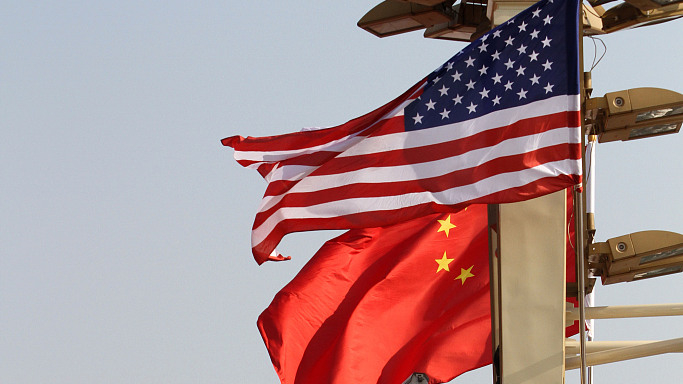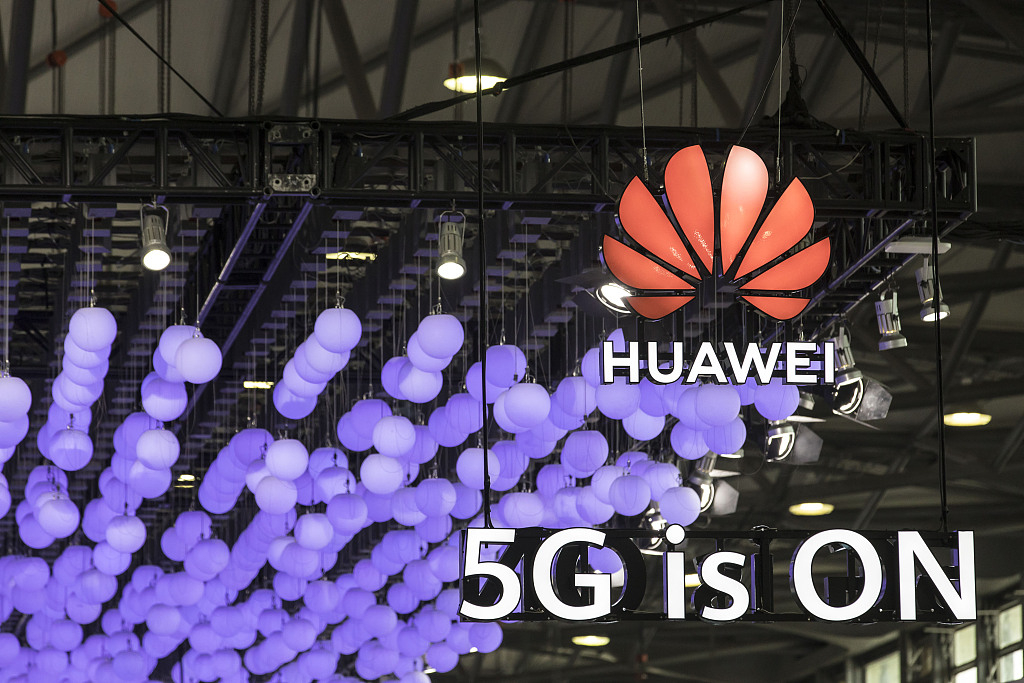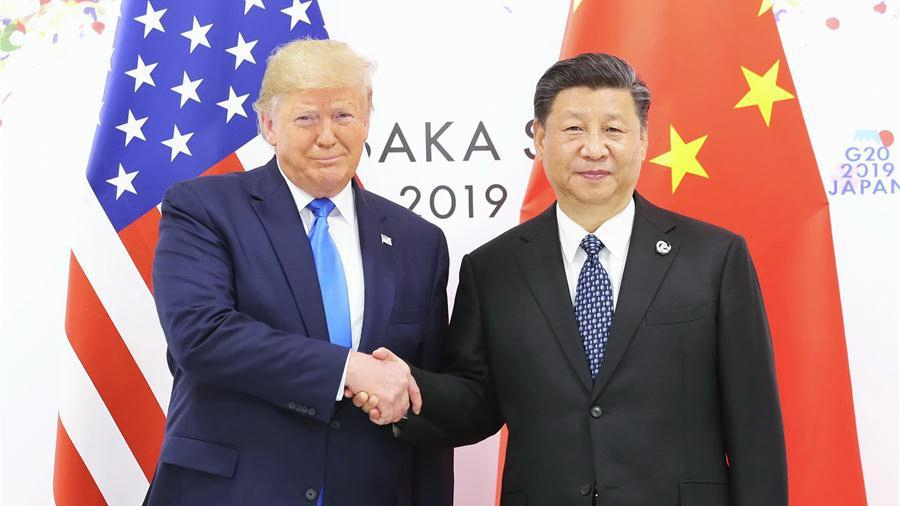

Editor's note: This article was translated and edited from a piece published on the WeChat public account Humanitas Tsinghua Forum. The article reflects the author's opinions and not necessarily the views of CGTN.
"The cycle of change between Trump administration's policies of detente and confrontation is very short, sometimes no more than 24 hours, which means that it can go from confrontation to detente, or from detente to confrontation in any minute," said Professor Yan Xuetong, dean and professor of the Institute of International Relations at Tsinghua University and secretary general of the World Peace Forum (China).
Yan said one thing certain about the Trump administration's foreign policy is that it is always absolute and uncertain, and therefore, we should not take any of his promises for granted.
At a press conference after the meeting between the United States and China in Osaka last month, Trump said he would allow U.S. companies to continue to sell to Huawei "where there's no great national security problem."
But why can't we take Donald Trump's promise of "allowing American companies to sell to Huawei" for granted?

Signage displayed at the Huawei Technologies Co. booth at the Mobile World Congress Shanghai exhibition in Shanghai, China, June 27, 2019. /VCG Photo
Why is the Trump administration undependable?
Yan pointed out that at present, the strategic competition between China and the U.S. is becoming increasingly fierce, and its core front is in the high-tech field. He said the focus of the competition for the right to make international rules is concentrated on the technical standards, and the U.S. believes that those for 5G technology are the key to maintaining its leadership.
At present, the 5G technology owned by Huawei, and other major Chinese companies, is in the leading position in the world, making China the number one competitor of the U.S. in the 5G field.
In 2019, in the Global Race to 5G report released by the Cellular Telecommunications Industry Association, the association representing the U.S. wireless communications industry, China and the U.S. tied for first in 5G readiness with 19 points. South Korea scored 18 points and Japan 17 points. Chinese companies hold 36 percent of the world's 5G standard patents, while the U.S. holds 14 percent of them.
The 5G Ecosystem report released by the U.S. Department of Defense indicates that if China is able to enter the 5G market first, the result will be that "China will be on a track to repeat in 5G what happened with the United States." In other words, if China's 5G can take the lead in the world, it will not only bring material wealth but also play a significant role in the rejuvenation of the Chinese nation and the improvement of the comprehensive strength of the country.
Huawei owns 1,529 5G standard patents as of early February 2019, more than any other company. Its edge in 5G technology naturally makes it the primary target of U.S. containment.
On April 12, 2019, President Trump said, "Secure 5G networks will absolutely be a vital link to America's prosperity and national security in the 21st century… We cannot allow any other country to out-compete the United States in this powerful industry of the future. The race to 5G is a race that America must win."

Chinese President Xi Jinping (R) meets with U.S. President Donald Trump in Osaka, Japan, June 29, 2019. /Xinhua Photo
How does China deal with U.S. policy?
Given the erratic nature of President Trump and the uncertainty of the U.S. foreign policy, China can proceed with the following three principles in mind.
First, be slow in rolling out 5G-related policies because the U.S. changes its mind very quickly.
Second, be skeptical about U.S. policy and don't buy their stories. No U.S. policy toward China should be considered final. The Huawei experience is a good case in point. While Huawei had been blacklisted by the U.S. Commerce Department, President Trump said American firms are allowed to continue to sell products to Huawei after initial discussions with Chinese President Xi Jinping on the sidelines of the G20 Summit in Osaka. Huawei should still take a wait-and-see attitude toward the U.S. Commerce Department's final decision because of inconstant U.S. policy.
Third, follow our own plan and always prepare for the worst. Trust the White House's words more when it says it will be tough on you, and trust it less when it says it will ease up.
(If you want to contribute and have specific expertise, please contact us at opinions@cgtn.com)

Copyright © 2018 CGTN. Beijing ICP prepared NO.16065310-3
Copyright © 2018 CGTN. Beijing ICP prepared NO.16065310-3